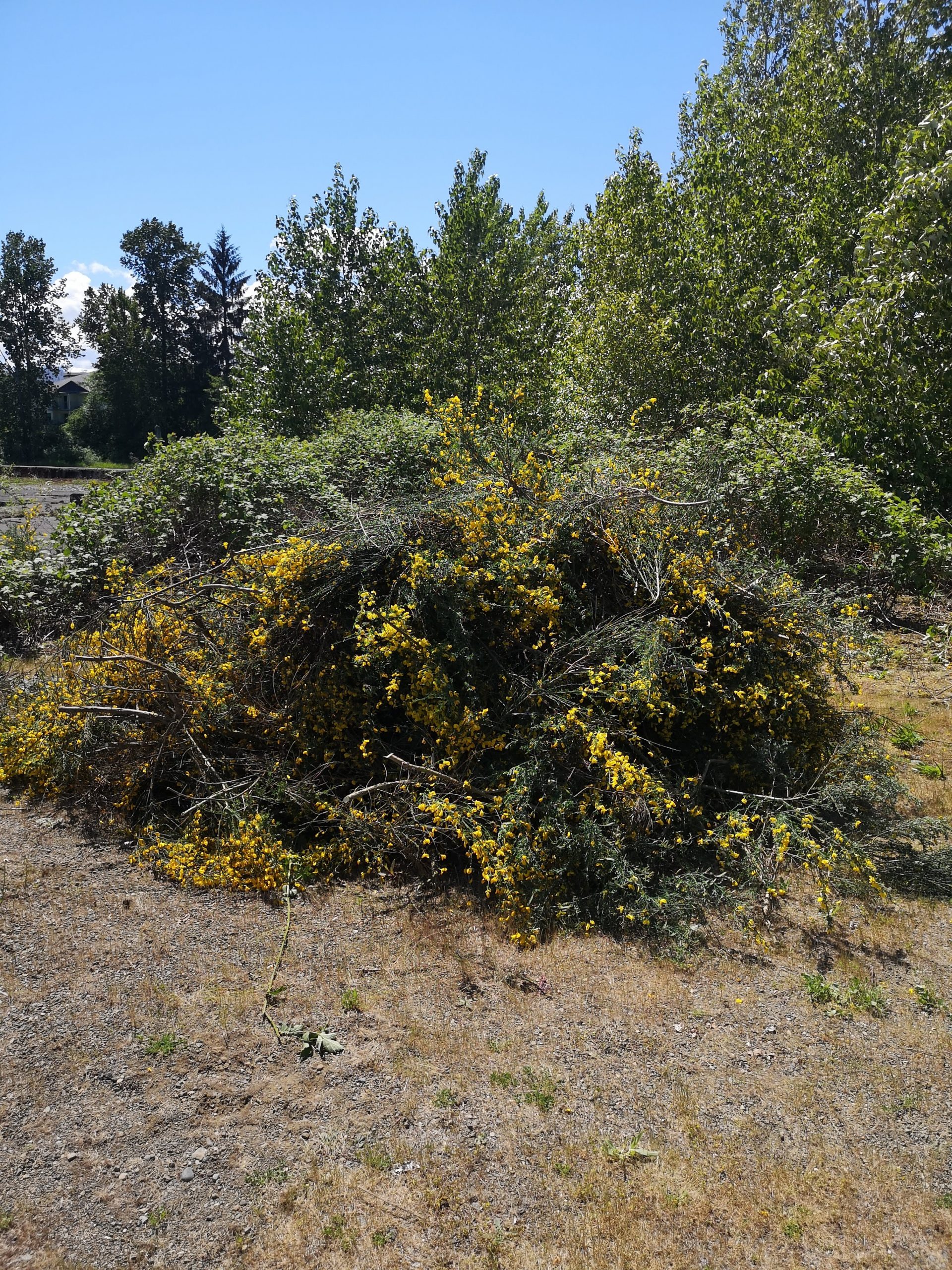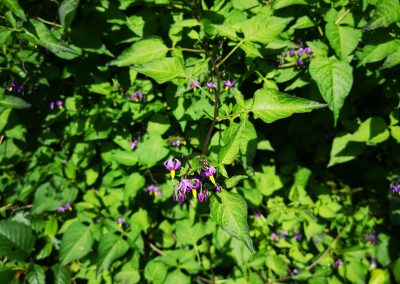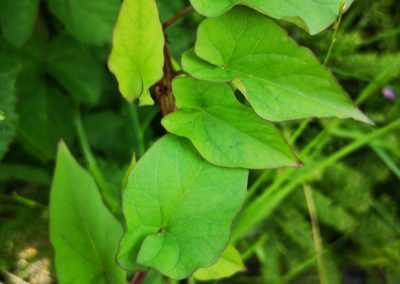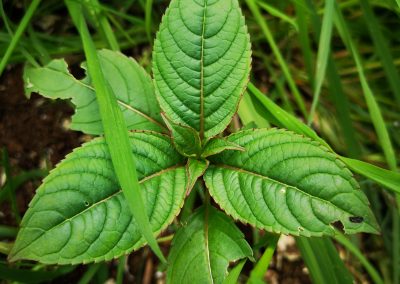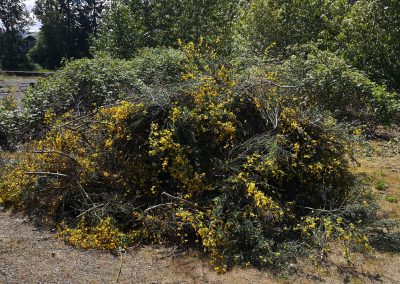Technician Report – Tuesday, Sept 7th
The environmental technician team has been hard at work removing invasive species from riparian zones. Over the last few months, we have targeted Scotch broom, European nightshade, Himalayan blackberry, morning glory, reed canary grass, and Himalayan balsam. These plants have been removed en masse due to their negative effects on the ecosystem. Invasive plants outcompete native species, decrease overall biodiversity and ecosystem resources, as well as stress fish bearing waterways.
Removing invasive plants is just one step in the process. Our team has replanted these areas with a diverse range of native species. Trees like red elderberry will increase habitat and food resources for birds while thimbleberry helps stabilize stream banks. We have also planted conifers, currants, and Oregon grape to increase plant biodiversity. With maintenance, these plants should outgrow the invasives and create a thriving ecosystem for fish, birds, and other wildlife.
With the help of the Healthy Watersheds Initiative funding Project Watershed has hired environmental technicians to assist with our projects over the summer and early fall. The Healthy Watersheds Initiative is delivered by the Real Estate Foundation of BC and Watersheds BC, with financial support from the Province of British Columbia as part of its $10-billion COVID-19 response. Jamie Lund, one of these technicians, will be posting a brief report every Tuesday to update the Project Watershed community on what they have been up to.
Related Posts
Eelgrass Update
In the fall our restoration team surveyed the three eelgrass beds which were planted with the help of our volunteers back in June. The beds are looking healthy!
Kus-kus-sum: End of Season Wrap-up
Now that we have put the Kus-kus-sum site to bed for the winter, we wanted to give you all a little update on how things progressed this season – lots happened!
Kate McKeown
Meet our new Forage Fish Technician!
Greenshores at Dyke Road Park – Reimagining a Park
On September 20 and 21, over 20 people were on site to help with planting at the Comox Valley Regional District’s (CVRD) Dyke Road Park redevelopment project.
Gartley Beach Green Shores for Homes Project
Project Watershed is teaming up with the CVRD and the Stewardship Centre for BC to do some shoreline restoration at Gartley Beach in Royston.
Fall and Winter Forage Fish Sampling
We’re gearing up for the fall/winter season of forage fish sampling!


